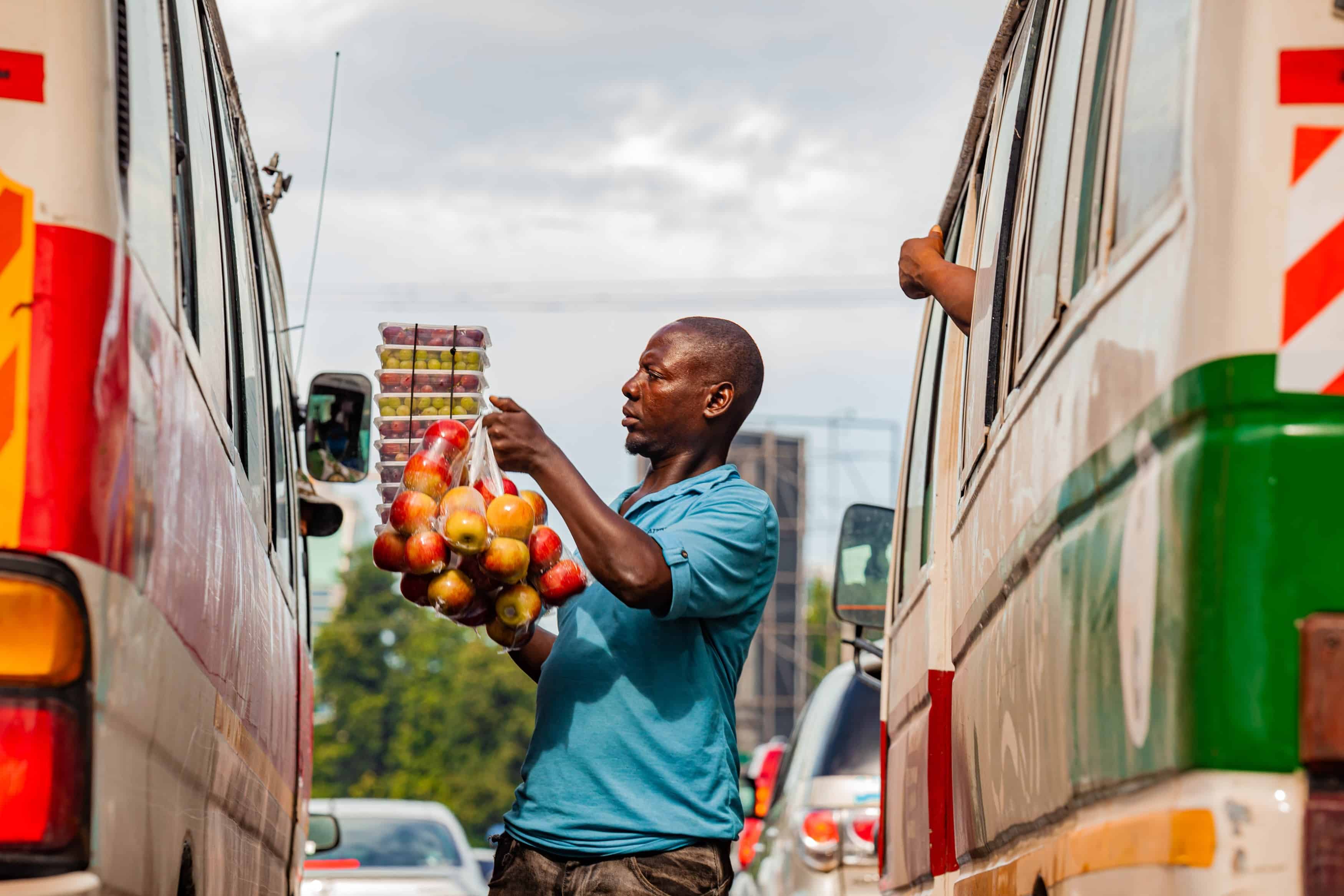Reflections from the Webinar on the Rise of Street Vendors in Tanzania and Its Economic Implications
By Julia Seifert, Research, Results and Insights Consultant, FSDT
On Friday, June 28th, 2024, FSDT hosted an engaging webinar that brought together financial sector practitioners, community development program facilitators, economists, as well as development partners in a forward-thinking discussion on how to enhance the understanding of the economic value of street vendors in Tanzania. The discussion unpacked the findings from The Rise of Street Vendors in Tanzania and Its Economic Implications, a study that FSDT in collaboration with UNDP contracted to explore the dynamics of conducting a street vending business, including the challenges that street vendors face when it comes to growing their businesses, accessing finance, finding conducive working environment.
Both the study and the discussion explored the opportunities that different stakeholders can leverage to help improve the business environment for street vendors. The goal of conducting this study was to support financial service providers (FSPs) in providing relevant and appropriate financial products and services for women and youth who depend on street vending as a primary source of income; regulators and policy makers to craft enabling regulations and policies for access to finance for these segments; and a smooth transition towards a cashless society.
Reflecting on the discussion, we would like to highlight the following ideas and recommendations that emerged:
- First and foremost we should take a moment to acknowledge the significant economic contribution street vendors have to our economy. Being part of the shadow economy, the overall economic contribution of street vendors is estimated to be 40% of the GDP. With majority of them being women and youth, this calls for a change in perception on how decision makers and sector actors should perceive street vendors, but also how street vendors should understand themselves. Despite being essential to urban economies, and providing critical goods and services, while creating livelihoods, street vendors still face significant challenges. These range from issues such as inadequate infrastructure, limited access to financial services, harassment, and adverse weather conditions.
- There’s a need for targeted education and support to bridge gaps in financial literacy, formalization, and access to resources. An integrated approach involving partnerships among financial service providers, non-governmental organizations, and civil society is crucial. The media can play a pivotal role in raising awareness, advocating for supportive policies, and fostering community engagement to ensure the growth and development of street vendors.
- There were several findings from the study that were particularly striking, notably the critical role street vendors play in urban economies amidst challenges such as inadequate infrastructure and limited access to finance. To address these, the Ministry of Community Development, Gender, Women and Special Groups, that is also overseeing the street vendors, is making joint efforts to formalize this group, including initiatives to provide permanent business locations, streamline business registration to enhance trustworthiness, and form specialized unit groups. Additionally, future plans include issuing identification cards to street vendors, facilitating better access to resources, and fostering collaborations with financial institutions and NGOs to offer tailored financial products and comprehensive support, thereby creating a more enabling environment for their growth and stability.
- There’s a need for a blueprint or strategy on street vendors as the country is assessing the feasibility of the development of a street vendor policy that will support in the gradual identification, formalization, as well as development of this key economical segment.
- Furthermore, street vendors have a significant contribution to the urban economy through job creation, provision of essential goods, and support for household incomes. For example, during the recent closure of businesses by large business owners in the Kariakoo Market in Dar es Salaam, street vendors became a vital refuge, underscoring their importance in maintaining economic continuity. To enhance their positive impact, financial service providers are recommended to offer tailored products such as microloans and low-fee savings accounts, and they should also increase financial literacy. Policymakers are recommended to simplify business registration, provide secure trading locations, and implement fair regulations to protect vendors. Enhancing policies for favorable lending terms and issuing identification cards can formalize the sector, making vendors more visible and trustworthy, thereby improving their access to financial services and support.
In conclusion, the call to action from the participants was to address the challenges that street vendors face in accessing finance directly. Are the requirements too stringent, or are loan terms overly complex? How are they currently navigating these obstacles? It’s crucial to address issues of identification and traceability promptly. We must catalyze a cultural shift among street vendors to embrace banking and establish a credible track record, leveraging existing solutions within reach. Policy clarity is paramount; we can draw key lessons from Dodoma Machinga Complex, where traders encounter fewer barriers to finance. Mobile loan facilities offer a great potential to bridge access to credit, but raising awareness about other accessible loan facilities with favorable terms is still paramount. Ensuring loan guarantees and managing associated costs are critical issues that demand stakeholder attention.
As a nation, we ought to prioritize support for all small entrepreneurs. In addition to extending loans to street vendors, we need to educate ourselves as stakeholders on the intricacies of their financial needs and equip them with essential financial knowledge to utilize credit productively. This can help us achieve financial inclusivity.

